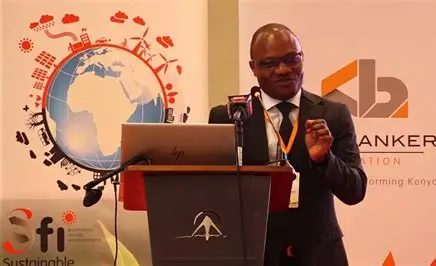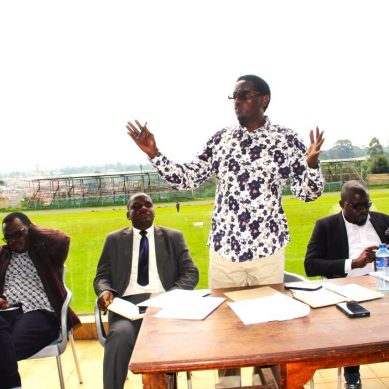
For the past two years, Dr Anthony Fauci has received $15,000,000 in taxpayer-funded security services – despite having returned to private citizenship.
Open the Books discovered the arrangement within a memorandum of understanding (MOU) between the US Marshals Service and the US Department of Health and Human Services (HHS) via a Freedom of Information Act (FOIA) request.
Up until at least late September, this agreement between the two government agencies has left the American taxpayer on the hook for the costs attached to Fauci’s lifestyle, which included a publicly funded chauffeur and a fully staffed US Marshals security detail.
The $15 million does not include the costs associated with his personal security from April 2020 to December 2022, which was handled by the same parties while he was still serving in government.
Fauci’s security has been a topic of discussion on cable news and in the halls of Congress, but until now, the details of the secret agreement had not been made public. According to the MOU, protection was available from January 4, 2023 to September 30.
The $15 million covers in part: Salaries and benefits for deputies and administrative personnel assigned to Fauci’s protective detail.
The MOU states that the contract could be extended, and it is unknown if it has been. We asked the US Marshals Service for clarification and they did not get back to us within our deadline. We will provide an update if they respond.
The former director of the National Institute of Allergy and Infectious Diseases (NIAID), who retired in December 2022, was one of the most influential figures in America and throughout the world during the coronavirus era.
Nearly ubiquitous on cable and broadcast news, Fauci became the face of America’s pandemic response. His supporters often spoke of him as a man of uncontested knowledge, consistently labelling him the world’s foremost “public health expert.”
But his detractors recall a government official who led the fight to implement years-long draconian restrictions upon the American people, which devastated the fabric of US society, greatly harmed the economy and caused all kinds of additional negative repercussions – including widespread learning loss among America’s youth.
Fauci was never shy to advocate for lockdowns, social distancing, school closures, business closures, mask mandates and vaccine passports from his powerful federal perch during the COVID-19 pandemic.
From 2019 to 2022 he was the highest-paid federal employee, and he received lucrative cash prizes from domestic and international organisations that sought to position themselves closely with the man who controlled the distribution of billions of dollars in grant-making funds. Fauci retired from the federal bureaucracy with a record $480,654 salary.
In 2022 Open the Books estimated his pension would be about $355,000 per year, adding to the considerable fortune of $11 million amassed over his 54 years of government service. The president of the US makes $400,000 per year. Supreme Court Chief Justice John Roberts made $312,200 in 2023.
Since retiring from the NIAID in December 2022, Fauci published a memoir and accepted a quasi-ceremonial dual-professorship at Georgetown University.
He holds the newfound title of Distinguished University Professor in the School of Medicine and is also affiliated with Georgetown’s McCourt School of Public Policy. The longtime NIAID chief has yet to teach a class at the university.
It is unclear how unusual the arrangement between HHS and the US Marshals Service may be. We could find no other cases of a former federal employee receiving this level of protection.
The US Marshals Service is a subagency of the US Department of Justice, typically tasked with capturing fugitives and protecting judges and court witnesses. In recent years, the US Marshals Service has stated it is unable to meet these essential duties due to budget constraints.
The tragic assassination of a judge’s son in 2020 led to an Inspector General report finding that “resource limitations and competing agency budget and staffing priorities” have prevented the agency from providing optimal protection to the nation’s judiciary.
The agency’s Fiscal Year 2025 Congressional Budget Request asked for $28.1 million in additional funds to better protect the nation’s judges, according to Reuters. While the funds to protect Fauci came from the HHS budget, valuable manhours from limited employee resources were used to staff Fauci’s security detail.
Other prominent political figures are not as fortunate as Fauci. Robert F. Kennedy Jr, who led an independent political campaign for president this year, was denied Secret Service protection six times during the course of his campaign in April 2023, according to National Review.
The campaign spent $3 million on private security. He was finally granted protection shortly after the failed attempt on President Donald Trump’s life in July, which was swiftly withdrawn again after he dropped out of the race in August.
Kennedy is a person of some means, but he appears to have received much less favourable treatment than Fauci. In media interviews about his security detail, Fauci said the costs are necessary and justified because of threats he has received from what he describes as the “extreme radical right.”
As detailed in a Newsweek report, a FOIA request revealed 34 instances of threatening language leveled at RFK Jr., including text messages that read, “How about you f*** off or I’ll come to your event and shoot every single person who attends. … Execution style and I’ll broadcast the entire shooting on live TV.”
Why was Fauci granted a year and a half of federal protection – a situation seemingly unique to federal bureaucrats – while a prominent presidential candidate went without it? The contract with the U.S. Marshals Service is just the latest example illustrating how taxpayers are left in the dark about the ways their money is being spent, and which private citizens get access to millions in public funds.
- A Tell report / Republished with permission of The Defender / By Amber Todoroff and Jordan Schachtel








